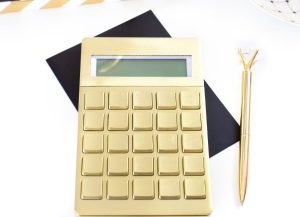We’ve all been there…
We’ve spent too much money on too many things we didn’t need, only to feel guilty after the fact.
I struggled with the inability to control my spending for the first four years of my twenties. I vividly recall getting a $1,000 tax refund and going to the mall the weekend after it was deposited into my empty checking account. I had no desire to control my spending. I had a full desire to spend it all, and I did.
Want to hear something even more crazy? I bought an $80 dress from American Apparel and because I had too many shopping bags, I ended up throwing it out. I had forgotten (or missed) the American Apparel bag. I literally threw my money away.
Thankfully, I’ve come a long way from that point in my life. I can now control the urge to spend on things I don’t need. And more importantly, I work with women to help them do the same. I’m sharing 5 tips to help you control your spending, so you can reach all of the financial goals you have for your life.
Why Spending Control is Crucial for Financial Success
Before I dive into the tips, it’s important to share why spending control is so critical to financial success. Obviously, if you can’t control your spending, one of two things happen: 1) you end up in debt (or deeper into debt) or 2) you end up with no savings.
Both of those situations are a recipe for zero financial independence. If you want to get ahead in your finances, build true wealth and reach the goals you set, you must control your spending. You need to set a realistic budget and stick to it. There’s no getting around it.
5 Tips to Help You Control Your Spending
Take your debit card out of your wallet
You can’t spend money you don’t have – at least while you’re out and about! When you can’t seem to control your spending, you have to put yourself in a position where you can’t spend. Take your debit card (and any other card) out of your wallet. Keep them out of your wallet.
If you need to go buy something, pull cash to cover the cost. You should already have an idea of what you can afford to spend (thanks to your budget), so pull the exact amount in cash and go get what you need.
Using exact cash can be a great way to stick to your spending limits. If you have your debit or credit cards with you while you’re out, you may be tempted to buy something you don’t need or didn’t originally plan for.
Freeze your credit cards
One of my clients had froze all of her credit cards. She was determined to stop using them, and we had already worked through budgeting her income, so she really didn’t need to use her credit cards. I would highly recommend this to anyone looking to control their spending.
The reality is that we know ourselves. If you know that you aren’t good at curbing impulse purchases, make it harder for you to actually spend on impulse. When your credit cards are frozen in a block of ice, you need to wait for them to defrost before using. This gives you time to really think about the purchase you want to make and decide if it’s worth waiting for.
Don’t save your credit card information on websites
This can be a tough tip to follow, because most internet browsers make it too easy to save your credit card information for future purchases. So, not only do you have to avoid saving your credit card information on specific websites, you need to avoid saving your credit card information in your general internet browser!
The harder you make it to spend money you should be spending, the more likely you are to not spend it! When you are trying to make a purchase online, especially if it’s something you don’t truly need, having to manually type in your credit card information forces you to think about what you’re doing. It’s not as simple as “1-click to purchase”. This can give you more time to change your mind!
Avoid places, things, or people who trigger you to spend
When I was on my journey to get my own spending under control, avoiding places that triggered me to spend money was so helpful! My mom and I would go to Ross, TJ Maxx, Marshalls and Nordstrom Rack every weekend. I never intended on buying anything, but always managed to find something I couldn’t resist purchasing.
When we stopped going to stores on the weekend, my spending stopped. As time went on, I didn’t have a desire to go places that had previously triggered me to spend. Now, I can go to the mall and walk out with nothing. In fact, I usually only go to the mall when I know I need something. If I need it, it’s likely already budgeted for.
Give yourself cash (after reviewing your budget)
I touched on this in the very first tip. Instead of having your debit and credit cards with you at all times, give yourself cash. At the start of every month, you should be going over your numbers for the month ahead. If you allot yourself $40 for gas and $50 for meals out, pull $90 in cash.
The great thing about cash is that it can help keep you in check. When the cash is all spent, that means there is no more money to spend until next pay day. Having the physical limit cash gives takes the pressure off of you to remember how much left you can afford to spend. Anything to make it easier on yourself to control your spending!
Signs You’re in Overspending Denial
Now that you know a few ways to help you control your spending, it’s time to face the music. If you are in overspending denial, you need to snap out of it! I’m sharing a few signs you may have a problem with overspending, but you don’t want to admit it!
You refuse to track your spending
When you refuse to track your spending, you are refusing to acknowledge what has previously been spent. Usually, the failure to acknowledge is due to a fear of what your situation looks like. You already know you’ve spent too much money, and you don’t want to see it in front of you.
You convince yourself you can’t afford to save
There is NO reason why a person can’t afford to save money, even if it’s a small amount. Have you been convincing yourself that your situation doesn’t allow you to save? You could be in overspending denial. Create a budget and track your spending for a month. See where your money goes. If it goes to anything you don’t need, you can afford to save money.
I share more signs you may be in denial of your spending in the article 6 Signs You’re in Overspending Denial.
Sometimes, outside accountability is what you need to start taking control of your spending. Schedule a free consultation with me and let me tell you how I can help hold you accountable!
Related: 5 Reasons to Track Your Spending
As I mentioned above, when you can control your spending, you can reach your financial goals faster! I hope my tips help you learn to control your spending and stick to that budget of yours! What do you do to help you control your own spending? Have you tried any of the tips listed above? Post a comment below to share what has worked for you!





